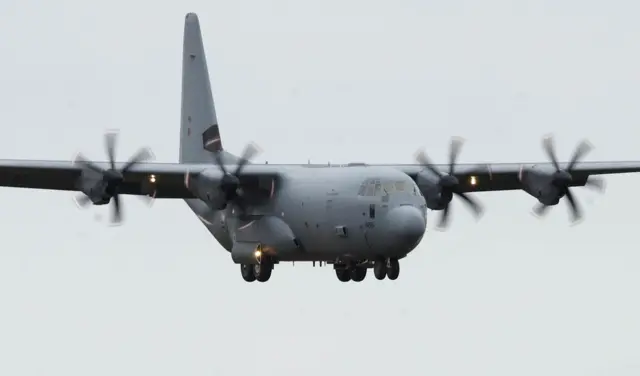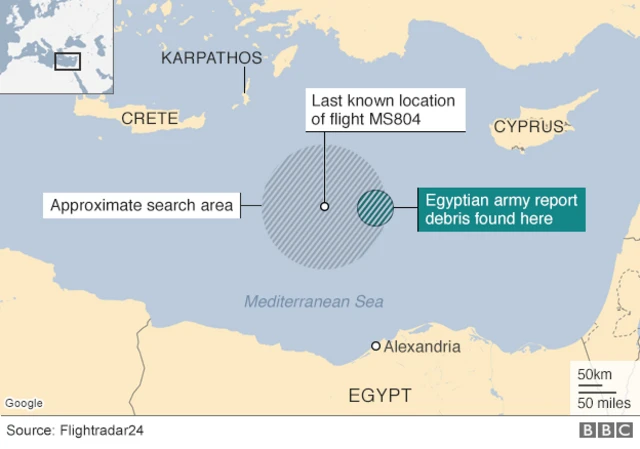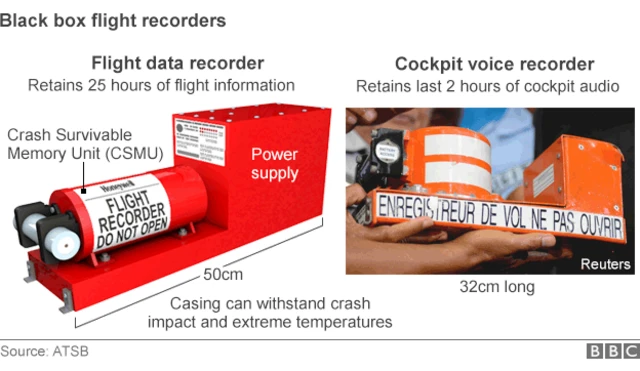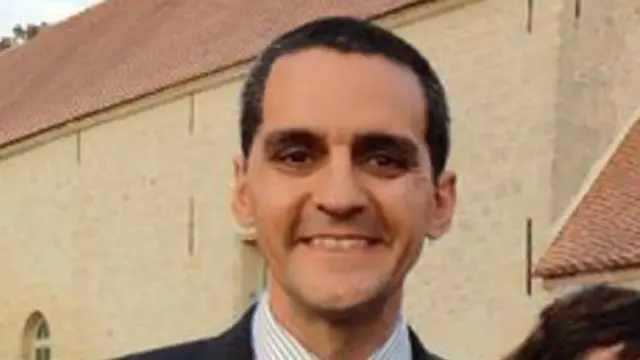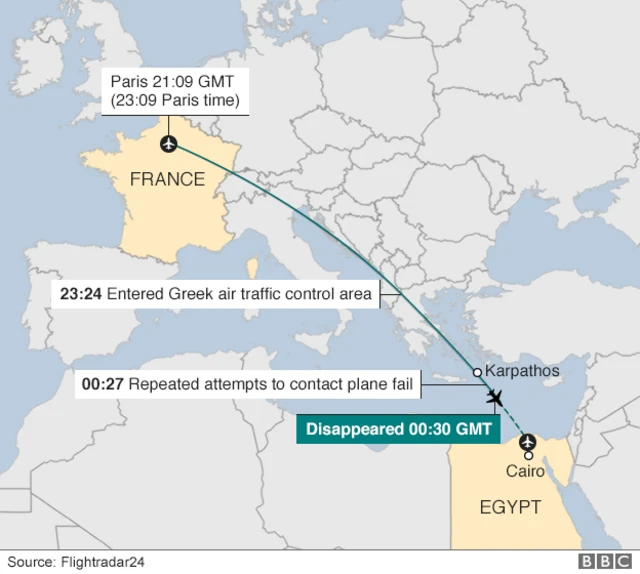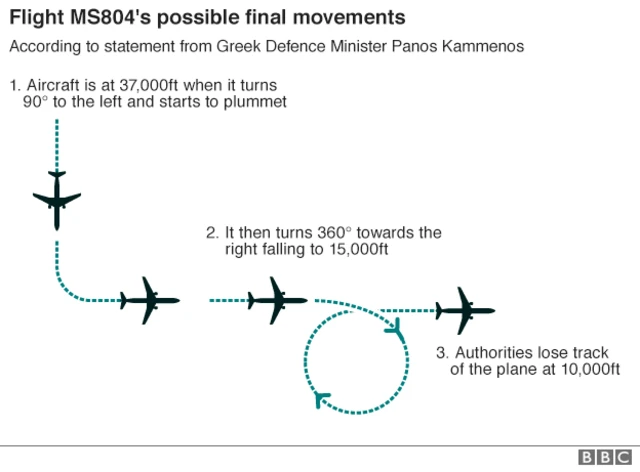'Some were fatalistic, others pragmatic' - passengers land in Cairo after crashpublished at 12:33 BST 20 May 2016
There was a "mix of attitudes" among passengers on flights into Cairo after the EgyptAir plane crashed, the BBC's Kevin Connolly says.
"On mine, some were fatalistic, others nervously pragmatic - one passenger told me he could not afford to change expensive, long-laid travel plans, however grim the news. Some were more openly apprehensive."
Read more from Kevin: EgyptAir crash fuels fears and theories
